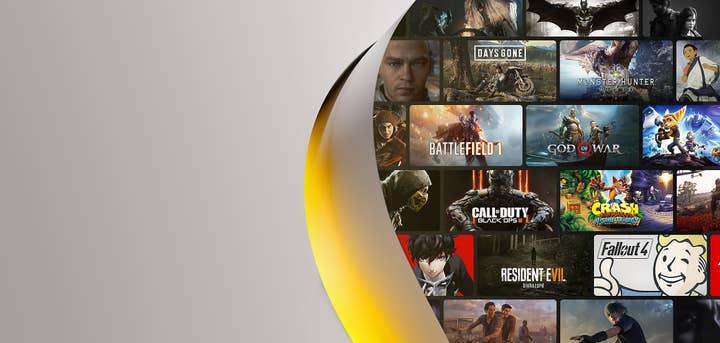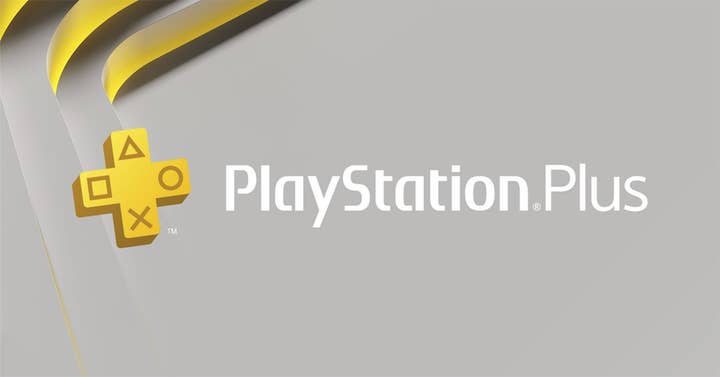Sony's new service offerings change the PlayStation landscape | Opinion
PS Plus' new tiers reflect Sony's discomfort with subscriptions cannibalising game sales - but this industry shift now feels inevitable
We've known for months that Sony has had something in the works for its subscription services offerings. Rumours of an overhaul codenamed Project Spartacus proliferated, but perhaps even more convincing than any rumour was the sense that Sony simply must have something up its sleeve; the challenge of Microsoft's widely praised Game Pass service could surely not go unanswered for much longer?
This week, we've finally seen what the company is planning: a three-tier service that will merge the PS Now streaming service with the existing PS Plus offering, while adding in a more extensive library of games from the PlayStation back catalogue.
Quite a few smart things have already been written about how this offering stacks up against Game Pass, and one of the key takeaways seems to be that it's not really meant to be a direct competitor -- not least because Game Pass is overtly designed to disrupt the business model of console gaming, which Sony does rather well from and would prefer if you kept your disruptive paws to yourself, thank you very much.
Sony's new tiered PS Plus is an attempt to square this circle; to give its users the kind of service offering that's becoming de rigeur, and establish a long tail revenue stream for older titles along the way -- all without knocking the support columns out from underneath the AAA game business in which it's been performing so spectacularly in recent years. It's a tricky balancing act, and while I imagine the new service will be very popular, I'm not convinced that the balancing act will actually work. This will cause a dramatic shift in the PlayStation's ecosystem, independently of whatever it does to the competitive dynamics between PlayStation and Xbox.
Sony's new offering helps ensure PlayStation doesn't fall behind in terms of services, but desire to have its cake and eat it is writ large in the decision making
Running through the details of the three new tiers -- Essentials, Extra, and Premium -- you can see pretty clearly how this move is ultimately going to lead to subscriptions replacing game purchasing as the core of the PlayStation business model. That's a transition that Microsoft is very gung-ho about, but Sony doesn't quite share that enthusiasm, which is understandable given their relative positions.
Sony has spent more than a decade building up a world-class studio system and a largely unrivalled pipeline of first-party games, making it hard for it to be a champion of major disruption to how AAA game releases work. Consequently, the new PS Plus tiers will all include an exception for major first-party new releases, which won't be available on the subscription services at launch. However, even if this feels like a major point of difference from Games Pass' day-and-date approach, I suspect that Sony's carve-out will only mitigate the impact on those releases to a certain degree.
Consumers will be constantly aware that major first-party games become available through their subscription after a given time window, and knowing that every major first-party title will pop up for "free" on their subscription service after a while will drive a major change in how they engage with games and think about their value. In that sense, while Sony's stance is understandable, they may end up bowing to the inevitable before too long -- putting first-party games on the subscription service day-and-date is an enormous marketing win for the service, and not doing so may actually mitigate less of the impact on sales of those titles than Sony is hoping and expecting.
We shouldn't underestimate the extent of the shift this marks in the way the console business model works -- indeed, it's instructive to look at how much of an impact has been caused to consumer behaviours by even relatively limited versions of this kind of service.
I'm thinking specifically of the PS Plus Collection of top-rated PS4 games that's available to all PS Plus subscribers with a PS5, which is barely a tasting flight of games compared to the scale of the proposed offerings in the new PS Plus tiers that will launch in June. Anecdotal though this may be, I've been fascinated by how many people I know who have spent significantly more time catching up with these back catalogue classics rather than engaging with new PS5 titles since getting their consoles, in some cases to the extent that I'm not sure they've actually bought a single new PS5 game yet.

I don't think this is typical of the average consumer, but it's certainly representative of some section of the market -- and especially of the more casual end of the market that becomes more and more important as console platforms mature. It's a demonstration of how the sheer wealth of content that a back catalogue subscription service offers can pretty much satiate a pretty broad swathe of consumers -- which has major knock-on effects for the viability of other business models, including full price new releases.
The new PS Plus tiers also represent Sony's most significant step towards embracing its full back catalogue, which the company has never been quite as full-throatedly supportive of as Microsoft -- even if we did see some very solid efforts in terms of the PS5's backwards compatibility. In part, that's down to the nature of the PlayStation back catalogue, which creates some interesting problems for Sony. Some of those are just down to the fact that the defining titles in many previous generations of PlayStation hardware weren't actually Sony's own games -- the current breadth and depth of Sony's first-party offerings is really something that only dates back to the latter half of the PS3 era.
Game Pass has changed expectations in key ways, and Sony doesn't have any option but to match those and compete
There are specific challenges with two of its past consoles -- the PS3, whose peculiar hardware architecture still seems to pose problems for reliable emulation and is thus relegated to streaming only, and the PS1, which isn't technically difficult to emulate, but Sony seems to think (perhaps with good reason) that games of that generation won't necessarily stand up to the expectations of modern consumers. Again, there's a sense here that the solution the company has arrived at is an exercise in circle-squaring; its most extensive retro catalogue is available only in the most expensive new PS Plus tier, which is an odd decision that arguably makes some degree of sense if you consider the reasoning that players willing to fork over extra cash for access to retro PlayStation titles are also more likely to be people who fully understand what those titles actually are.
Even if there are caveats involved, however, Sony's decision to finally create a service tier that's designed to play host to a large library of back catalogue games dating all the way back to the PS1 represents a landscape shift of its own. Games and IPs that in some cases haven't generated revenue in decades are starting to have commercial value again as part of these services, both on PlayStation and Xbox (and on Nintendo's online service, of course, but Nintendo mastered generating ongoing revenue from old software long ago).
After years of bemoaning the fact that games only got "one bite at the cherry" -- generating almost all of their lifetime revenue in the first week or two on sale -- this kind of long tail is becoming firmly embedded as a key part of the industry's new business model, and Sony's new services will only push that process forward. It's fair to wonder if that change might not create pressures for change in other aspects of the industry -- most notably in terms of how people get paid, as long-tail revenues from old games will motivate creators (at least those in a strong enough bargaining position) to push for some kind of residuals in their contracts, matching the payment terms that are standard in many other creative fields.
Sony's newly announced offerings go some way towards ensuring that the PlayStation doesn't fall behind Microsoft in terms of services, but the company's desire to have its cake and eat it -- to build out a subscription service without kicking the legs out from under its existing business model -- is writ large in the decision making.
The rationale is easy to understand; Sony has far less to gain than Microsoft from a sea-change in the industry's business models, because it's doing very nicely indeed out of the existing model. Nonetheless, Game Pass has changed the industry and consumers' expectations in key ways, and Sony really doesn't have any option but to find a way to match those expectations and compete.
While it's tried to carve out some space for its existing model to thrive, the new subscription services will still enormously change the landscape of its own PlayStation ecosystem -- including in ways that it might not wish for, and others that might not be immediately apparent.









